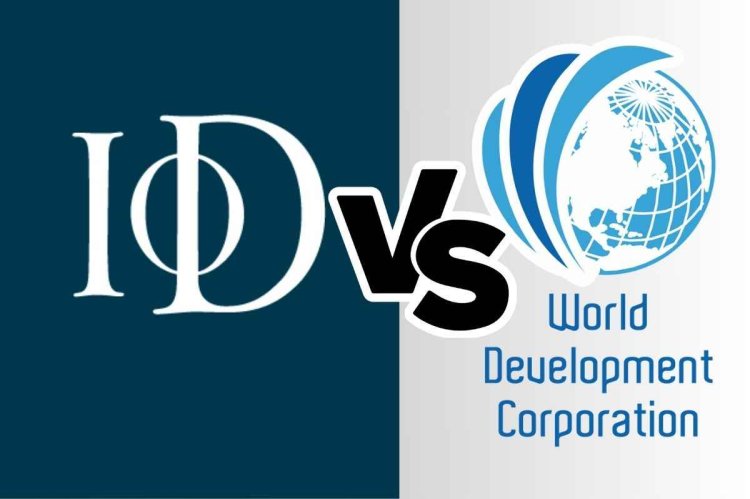Institute of Directors v. Worlddevcorp Technology and Business Solutions Pvt. Ltd.
The case of Institute of Directors v. Worlddevcorp Technology and Business Solutions Pvt. Ltd., as decided on 11-12-2023, revolves around a trademark dispute. The plaintiff, Institute of Directors, registered trademarks related to its activities under the Trade Marks Act of 1999. The defendant's application for a mark containing "Directors' Institute" led to a legal challenge by the plaintiff, alleging potential confusion with their registered marks. The court, in its analysis, delves into the distinctiveness of the plaintiff's marks and the absolute prohibition under Section 9(1)(a) of the TM Act. The decision highlights the importance of continuous usage and secondary significance for a mark to be eligible for registration. It also underscores the inability to monopolize common English words or phrases. The ruling urges caution in obtaining registration for marks comprising ordinary language and emphasizes the need for a balanced approach in protecting intellectual property rights.

Institute of Directors v. Worlddevcorp Technology and Business Solutions Pvt. Ltd.
SCC Online Del 7841
Decided on 11-12-2023
Brief Facts
In this particular case, the plaintiff, Institute of Directors, had registered the trademarks 'Institute of Directors' and 'IOD' under the Trade Marks Act of 1999. The plaintiff's device mark in Class 41, which pertained to arranging and conducting conferences, seminars, and workshops, and organizing international conferences and training programs, was subjected to a disclaimer that prevented the plaintiff from claiming any exclusive rights over the descriptive matter appearing on the label. It was stated that the plaintiff used these marks for running an institute, conducting events, networking, and other associated activities.
The defendant applied for the registration of the mark for education, training, entertainment, sporting, and cultural activities. The plaintiff's grievance was primarily against the textual component of the defendant's mark, which read as "Directors' Institute." The plaintiff argued that the use of "Directors' Institute" by the defendants, when seen together with the plaintiff's mark 'Institute of Directors,' was bound to result in confusion in the minds of the public, especially as the marks were used for providing similar and allied services. As a result, the plaintiff filed the present application under Order 39 Rules 1 and 2 of the CPC.
Analysis, Law, and Decision
The court observed that the plaintiff had previously stated, in their application to the Trade Marks Registry, that the words used in their mark were of common English language and descriptive in nature, and could not belong to any one proprietor. The court concluded that this admission implied that the textual component of the plaintiff's device mark was descriptive and lacked distinctiveness. The court further stated that words of ordinary English usage could not be monopolized, otherwise, the entire English language would be appropriated by a few, which could not be permitted. Therefore, under Section 9(1)(a) of the TM Act, there was an absolute prohibition to register marks that inherently lacked distinctiveness and were incapable of distinguishing the goods or services of one person from another. The court stated that only if the mark had attained secondary significance by dint of continuous usage, then such a mark could be registered. Otherwise, words of common English usage, even when put together to form a phrase of common English usage, could not be registered. The court concluded that the plaintiff was prima facie disentitled from seeking an injunction against the use of the words “Directors’ Institute” by the defendants, as they had stated to the Trade Marks Registry that the words used in the device mark were words of common English usage that could not belong to any one proprietor. The court advised that obtaining registration in respect of a mark consisting of common English words was fraught with the possibility of adverse consequences. The registrant had to be conscious that since the mark was a combination of ordinary English words, there was every possibility that a similar mark was being used by another person. Commonly used words or a non-distinctive combination of commonly used words could not be monopolized by any one person, so as to disentitle others from using them. Thus, the court stated that the plaintiff’s claim to exclusivity over the words “Institute of Directors” and their prayer for a restraint against the defendants’ using the words “Directors Institute” could not prima facie sustain.
Conclusion
The court emphasized that common English words or phrases lacking distinctiveness cannot be monopolized. Continuous usage and secondary significance are essential for a mark to be eligible for registration. The ruling cautioned registrants that obtaining registration for marks comprising ordinary language might invite challenges and encouraged a mindful approach. The decision reinforced the balance between protecting IP rights and preventing the unwarranted monopolization of common language, promoting fair competition in the marketplace.












